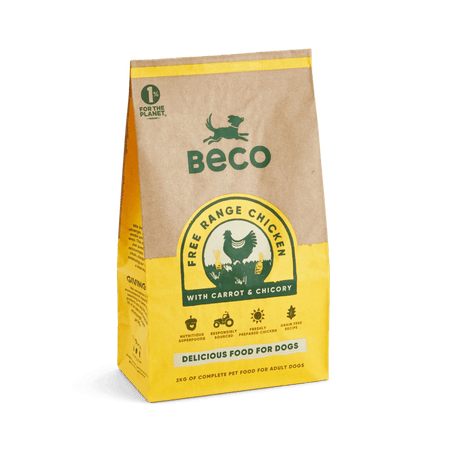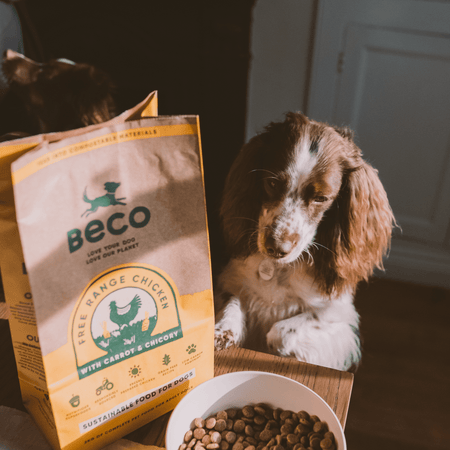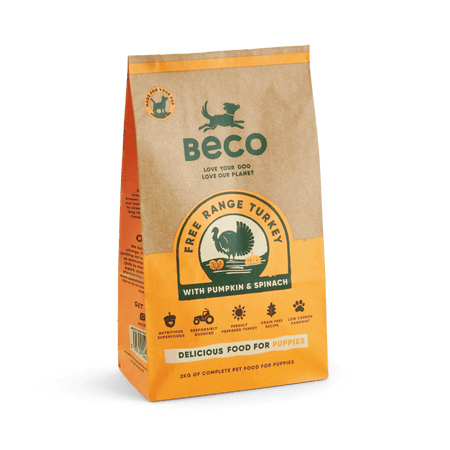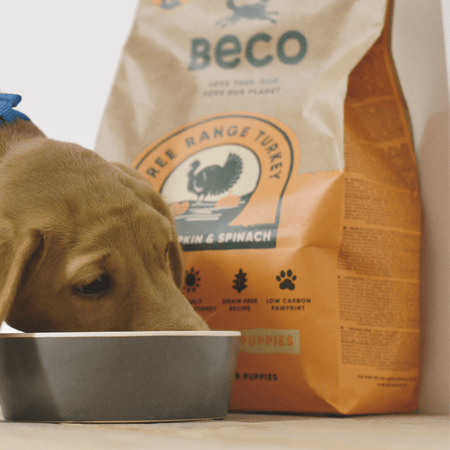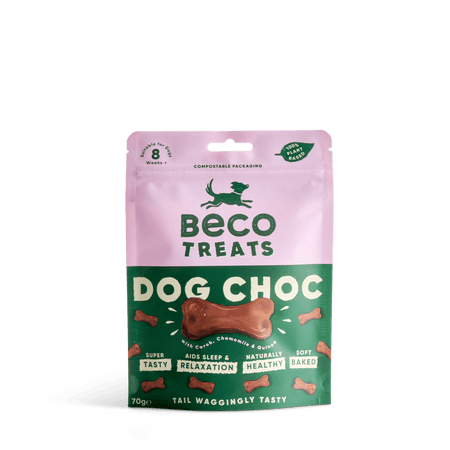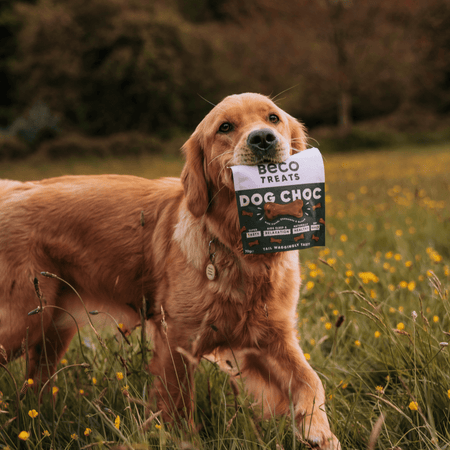When you get a puppy, one of the first things you will be looking into is what you are going to feed it. When researching the best diet for your puppy, you are likely to come across a variety of options from kibble to raw but which one is best?
There are pros and cons for all diets, but a raw diet for puppies is perhaps the most controversial. We’re here to provide you with all the facts so you know exactly what to feed your new furry friend!
Key Summary
Raw diets for puppies have pros like enhanced digestion, coat health and reduced allergies, but also cons like bacterial contamination risk and nutritional imbalances.
Preparing a balanced raw meal is challenging and potentially more expensive than other options.
Alternatives to raw diets include commercially prepared foods, home-cooked diets, grain-free diets and hybrid diets.
The choice between raw and kibble depends on the puppy's health, breed, size, nutritional needs and owner's circumstances.
Vet opinions on raw diets vary, considering potential benefits and risks. Professional advice is crucial for balanced nutrition.
What Does a Puppy Need to Grow?
Growing puppies, just like human babies, have specific nutritional requirements and a balanced diet helps them flourish. A good puppy diet must be rich in the following:
Protein
Often known as a building block of life, it forms the foundation of a pup's diet. It aids in cell regeneration, growth, and development.
Fats
Providing a concentrated source of energy, fats also contribute to brain development.
Carbohydrates
Offering immediate energy, carbs also help with your pup’s digestion
Vitamins and Minerals
Vitamins, such as A, B, C, D and K, as well as minerals such as Zinc, Potassium, Iron, and Calcium, play vital roles in supporting immune functions, bone health, and metabolic regulation.
What is a Raw Diet?
Over the past decade, the trend of feeding a puppy raw food has gained significant traction. One study has shown that about 66% of dog owners have adopted a raw diet for their dogs. This diet involves feeding uncooked meat, bones, fruits, vegetables and dairy to dogs.
The supporters of a raw food diet for puppies believe it mimics the natural, ancestral diet of wild canines. They argue that it promotes healthier skin, shinier coats, higher energy levels, and better dental health, however, this dietary movement is not without its controversies.
Some vets express concerns over the potential health risks associated with raw feeding puppies. Scientists have discovered that up to 80% of the raw food tested contained traces of Salmonella, which could endanger not just the dogs but their owners as well.
Despite the concerns, another study published by New Scientist demonstrated that dogs consuming a raw diet had better gut health compared to those on kibble. So, what’s the truth? Let's explore further in our raw feeding guide for puppies.
Is Raw Food Good for Dogs? Pros and Cons

With differing views on the benefits of raw food for dogs, and nutrition being of particular importance to puppy development, we’ve compiled the pros and cons so you can make a more informed choice for your puppy.
Pros:
Puppy Not Eating Dry Food
A significant selling point for raw feeding a puppy is the prospect of improved digestive health. The diet primarily comprises unprocessed foods, eliminating the risk of puppies ingesting indigestible fillers present in many commercial dog foods. As a result, your puppy might experience improved digestion and efficient nutrient absorption.
Improved Coat and Skin Health
The presence of high-quality proteins and essential fatty acids in a raw diet is often associated with healthier skin and a shinier, lustrous coat. Feeding a puppy raw food, rich in these nutrients, could contribute to improved dermatological health, helping your puppy look and feel its best.
Higher Energy Levels
Observations suggest that puppies fed a raw diet often exhibit higher energy levels. Nutrient-dense foods may contribute to increased vitality, leading to a more active, playful puppy. This energy can translate into improved cognitive and physical development.
Better Dental Health
Supporters of a raw diet argue that the act of gnawing on raw, meaty bones can help keep a puppy's teeth clean and healthy, reducing the risk of dental diseases, however, this advantage must be weighed against potential risks associated with bone consumption.
Reduced Allergy Symptoms
Some puppies might be allergic to certain ingredients present in commercially prepared foods. Opting for a raw diet allows you to control what your puppy consumes, potentially alleviating food-related allergy symptoms.
Cons:
Risk of Bacterial Contamination
A significant downside to a raw diet is the potential risk of bacterial contamination, which studies have found can occur even in puppies fed a raw diet. Raw meats could harbour harmful bacteria like Salmonella and E. Coli, posing a threat to your puppy's health. Moreover, humans handling raw meat are also at risk of infection.
Nutritional Imbalances
Preparing a balanced raw meal at home can be a challenging feat. Each meal needs to have the right proportion of proteins, fats, carbohydrates, vitamins and minerals. A study revealed that home-prepared raw meals often lack nutritional adequacy, which could lead to deficiencies or excesses detrimental to your puppy's health.
Potential for Choking and Intestinal Damage
Raw bones, particularly small or splintering ones, can pose significant risks. Puppies might choke on smaller pieces, or sharp fragments could damage their digestive tract.
Difficulty in Meal Planning and Preparation
A raw diet requires considerable effort to plan and prepare. It might be time-consuming and difficult to source quality raw ingredients consistently.
Cost Implications
Generally, a raw diet tends to be more expensive than commercially available puppy food.
Depeding on the ingredients used, the costs can add up quickly, making it a less feasible option for some puppy owners.
Summary | Raw Feeding a Puppy
| Pros | Cons |
|---|---|
| Enhanced Digestive Health | Risk of Bacterial Contamination |
| Improved Coat and Skin Health | Nutritional Imbalances |
| Higher Energy Levels | Potential for Choking and Intestinal Damage |
| Better Dental Health | Difficulty in Meal Planning and Preparation |
| Reduced Allergy Symptoms | Cost Implications |
What are the Alternatives to a Raw Food Diet for Puppies?
If you're reconsidering or simply not convinced about the idea of a raw diet for your puppy, there are several alternative diets that also offer balanced nutrition.
𝐢 Each option has its unique benefits and potential drawbacks, and what works best will depend on your puppy's individual needs and your personal circumstances smoothly.
Remember, any dietary changes you make to your pup’s meals should be a gradual transition to avoid stomach upsets. Here are some of the most common alternatives to a raw food diet for puppies
Commercially Prepared Puppy Food (Kibble or Canned)
Commercially prepared puppy foods, available in kibble or canned formats, are convenient and specifically formulated to meet puppies' nutritional needs. These options are regulated, by bodies such as the Pet Food Industry Association, easily portioned, and offer a variety of choices to cater to different breeds and growth stages.
Pros:
Convenience and ease of portioning
Wide availability and variety
Meets comprehensive nutritional requirements
Cons:
May contain artificial preservatives, colourings, and additives
Quality and digestibility can vary between brands
Home-Cooked Diet
Home-cooked diets allow you to control your puppy's meals, tailoring them to individual needs with high-quality, human-grade ingredients, and plenty of protein, such as tuna or chicken. They do, however, require careful planning and knowledge of canine nutrition to ensure balanced meals.
Pros:
Total control over ingredients
Potential for high digestibility and palatability
Cons:
Requires nutritional balance considerations
Potential health risks associated with raw components
Grain-Free Diet
Grain-free diets, which substitute grains with other carbs like sweet potatoes or lentils, can be beneficial for puppies with grain allergies or intolerance, but might lack certain nutrients if not properly balanced.
Pros:
Provides variety and potential for more balanced nutrition
Flexibility in diet planning
Cons:
Potential link to heart disease (DCM) in dogs
May lack certain nutrients if not correctly formulated
Hybrid Diet
Hybrid diets combine different feeding styles, such as commercial food supplemented with raw or home-cooked elements, providing variety and potential for a more balanced nutritional profile.
Pros:
Provides variety and potential for more balanced nutrition
Flexibility in diet planning
Cons:
Requires nutritional balance considerations
Potential health risks associated with raw components
Frequently Asked Questions (FAQs)
Is Raw Food or Kibble Better for Puppies?
The choice between raw food and kibble for puppies isn't universally definitive as it will depend on factors such as your puppy’s overall health, breed, size and nutritional requirements.
Additionally, your personal circumstances, including time, budget, and comfort with handling raw meat, can play a significant role. Some puppies thrive on a raw diet due to its natural composition and absence of artificial additives, while others do better with kibble, enjoying its convenience and balanced nutrition.
Do Vets Recommend a Raw Diet for Dogs in the UK?
Opinions among vets about a raw diet for dogs in the UK, like in most places, can vary widely. Some vets might endorse a raw diet, particularly those leaning towards holistic veterinary medicine as they believe a properly managed raw diet can provide a variety of health benefits for certain dogs.
On the other hand, there are many other vets who are against a raw diet with reasons ranging from potential risks it presents from bacterial contamination to nutritional imbalances.
Conclusion
Deciding whether to consider a raw diet for puppies is a personal choice that should take into account the unique needs of your pet and your ability to ensure a balanced diet.
Whilst there are some concerns surrounding raw diet for puppies including bacterial contamination and choking hazards, there are also research-backed benefits including improved digestive health.
Remember, a healthy puppy is a happy puppy. Whichever diet you choose, always aim for complete, balanced nutrition, and never hesitate to seek professional advice when needed.













